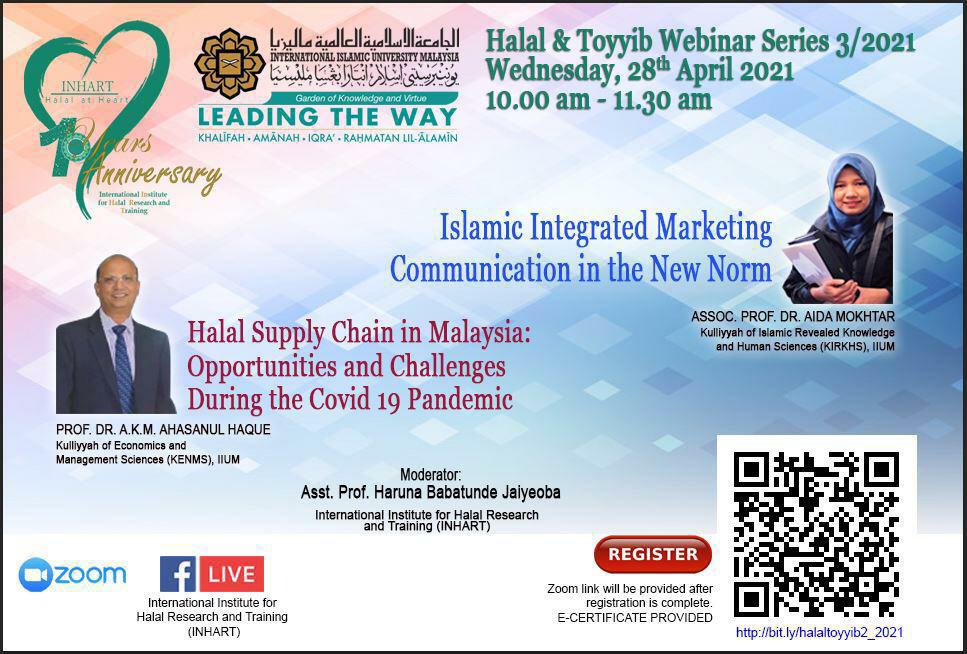By Sarah Rashdi
GOMBAK, 30 April 2021: The concept of ˜halalan toyyiban which encompasses the safety and quality of foods and materials has the opportunity to become more lucrative amidst the COVID-19 pandemic as the demand for halal supply has increased tremendously, a webinar was told recently.
According to Prof. Dr. AKM Ahasanul Haque of Kulliyyah of Economics and Management Sciences (KENMS), the potential market of halal items all over the world is increasing and the purchasing power of Muslims is also growing.
He said that the the global Muslim population has reached 1.8 billion and is projected to be growing even more each year. “Hence, the Muslim market is growing as the Muslims are growing globally.”
“As the market of halal items is widely distributed throughout the world, this has caused an increase in the demand for halal products, including from the non-Islamic countries,” the professor said.
Dr. Ahasanul Haque added, œThe unprecedented disruption during the COVID-19 pandemic, from national lockdowns to closures of airspace and borders has greatly impacted the food supply chain and trade protectionist. Thus, this has been the primary focus of halal supply chain.
Halal, he further said, is applicable for all human beings, including the non-Muslim people. This has caused the halal products to become well-known globally and has also emphasised the need for a halal supply chain.”
Meanwhile, Assoc. Prof. Dr. Aida Mokhtar from Kulliyyah of Islamic Revealed Knowledge and Human Sciences (KIRKHS) said, œHalal is a lifestyle for all, not just Muslims. Even the non-Muslims purchased halal food because of food safety.
Dr. Aida added, œThe demand for halal products makes Islamic Integrated Marketing Communication become important.
She said that the Islamic Integrated Marketing Communication emphasises the role of Islam in life and the necessity for Muslim entrepreneurs to play the role as vicegerents of Allah in which to embrace Islamic values in all circumstances.
“Halal is not only applicable to the food itself. It includes the process of supplying the goods from the manufacturers to the consumers,” Dr. Aida added.
This one and the half hour Halal and Toyyib Webinar Series 3/2021 was divided into two slots. The first slot was filled with Dr. Ahasanul sharing on the topic “Halal supply chain in Malaysia: Opportunities and Challenges During the Covid-19 Pandemic”, while the second slot was entrusted to Dr. Aida to give her sharing on “Islamic Integrated Marketing Communication in the New Norm”.
Organised by International Institute for Halal Research and Training (INHART) IIUM, the event was moderated by Asst. Prof. Haruna Babatunde Jalyeoba from INHART and was held on Wednesday (28 April).
The recorded session is available on INHART IIUM official Facebook page.***
